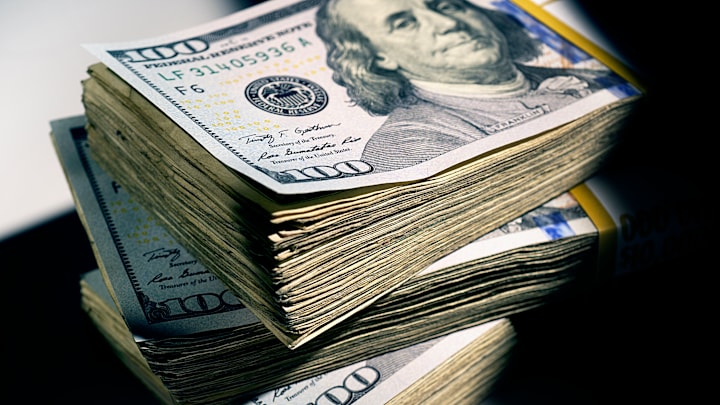Sometimes, making money costs businesses money. Thanks to credit card merchant fees and surcharges, some storefronts institute a policy of accepting only cold, hard cash. And while most everyone understands what that means—it’s time to break out paper currency—the idiom itself is a little mysterious. What makes cold, hard cash a colloquialism for paying with real money?
- The Meaning of Cold, Hard Cash
- The Psychological Effects of Cold, Hard Cash
- The Origin of Dollars to Doughnuts
The Meaning of Cold, Hard Cash
According to the Oxford English Dictionary, the phrase hard cash or hard money can be traced back to the 1600s, when merchants demanded tangible money in exchange for goods and services. Consumers, in turn, made an offer of hard money to stress their level of interest and possibly gain an advantage over others who might seek to pay on credit or in trade.
“I'll give thee fifty Guineas hard money in hand,” one might say. In other words: Here’s cash, right now, not to be paid later.
In 1882, the Counting-House Dictionary defined hard cash as “popularly used to denote bank notes, and other documents of undoubted value, in contradistinction to mere book debts, or commercial rights.”
The hard in hard cash is easy enough to figure. Coins and other metal currencies were firm, whereas bank notes or letters of credit were flimsy paper.
But some materials, like silver or gold, are actually slightly soft. When coin production incorporated firmer and more durable alloys to strengthen them, cold, hard cash became an oft-used idiom to indicate cash that was firm and cool to the touch.
Cold, hard cash almost always refers to immediacy. For example, a bond or promissory note cannot be readily exchanged for money or other goods; a check could theoretically be worthless if the payee doesn’t have the funds to cover it.
The Psychological Effects of Cold, Hard Cash
Cold, hard cash is more than just an idiom or bargaining tool—it might actually have some psychological effect. Numerous studies over the years have found that handling hard currency tends to make subjects more socially insensitive. In one study, subjects who had just visited an ATM to withdraw cash appeared to be less likely to help a passerby in need than those who hadn’t. (In this case, it alerted a stranger that they had dropped a bus pass.) Cold cash might induce a sense of superiority or social separation that manifests in chilly behavior.
Cash can also make people more aware of their spending habits, either through the physical act of handing it over or by having a set amount of cash to represent a budget. Using credit, debit, or contactless cards often separates the consumer from their spending—invariably, they spend more. Cash creates a kind of separation anxiety. In physically paying with it, we’re more aware of losing it. In this context, cold, hard cash can undercut the seriousness of parting with your money.
The Origin of Dollars to Doughnuts
Countless idioms involve money, from one red cent to top dollar to a dime a dozen. But dollars to doughnuts is probably among the more cryptic.
According to Grammarist, dollars to doughnuts (and its close relative, dollars to buttons) dates back to the 1800s and is meant to convey confidence in one’s opinion. Because doughnuts (or buttons) were relatively cheap to acquire, a person betting their dollars against fried dough meant they were certain they were right about something. Dollars to dimes would carry a similar meaning, though it’s not as jovial.
Get Answers to More Big Questions:
